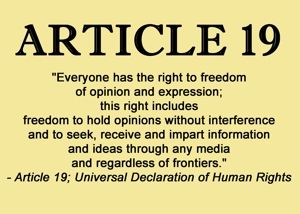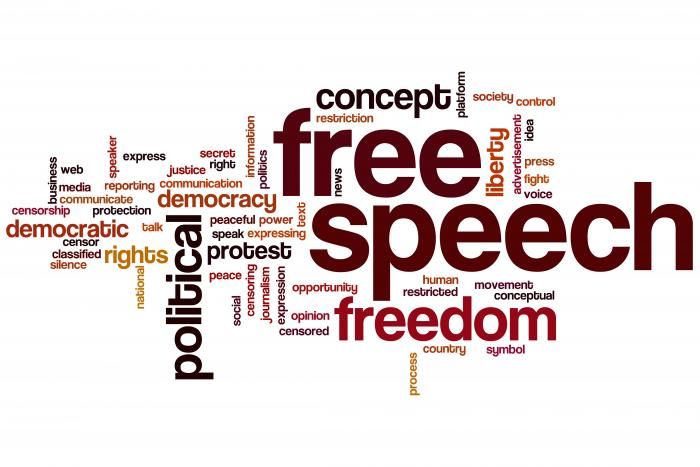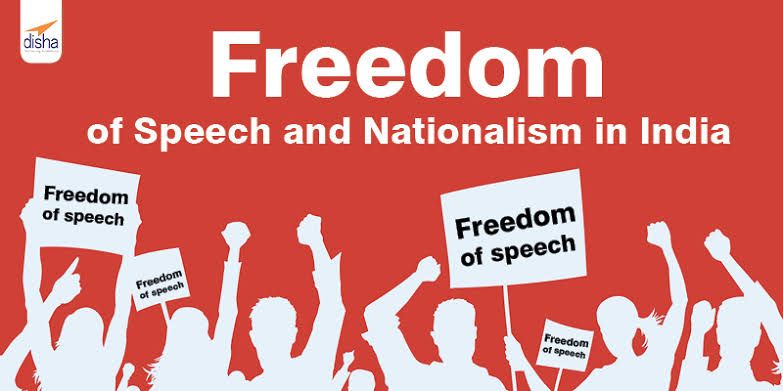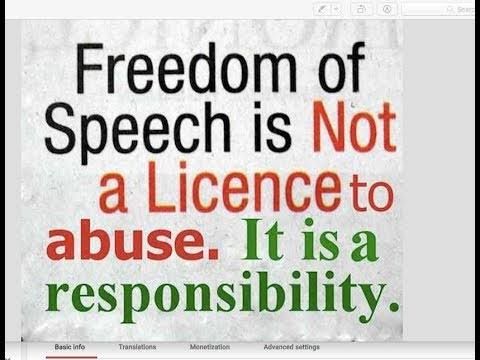Freedom Of Speech & Expression: Freedom Of Press
Apr 13, 2019 • 100 views
The indian constitution is very vast & the freedom we enjoy today have been defined in our constitution. Thus Article 19 is very important to understand. This Article contains the most basic freedom rights. Article 19 contains that all the citizens have right:-
to freedom of speech and expression;
to assemble peaceably and without arms;
to form associations or unions;
to move freely throughout the territory of India;
to reside and settle in any part of the territory of India;
to practice any profession, or to carry on any occupation, trade or business.

The Freedom of Speech & Expression works as a pillar for the Democracy to work properly. The freedom of speech & expression gives the right to express your ideas & views to the public. It can be done in the form of books, pictures, audio, video, news, movies, broadcasting etc.

This Article provides a sense of freedom to the citizen of an independent country that they can share their views without being oppressed & restricted by an Dictator.

The freedom of speech & expression is not only important for giving the citizen a sense of security but it is important for a basic necessity for which we developed a source to communicate. It helps people to impart knowledge & facts that are true, which may get suppressed by some force because it is against the ruling belief. Knowledge can only be shared by communication, by asking questions & challenging the existing beliefs & processes.

This is very important to understand when & where the limit to freedom of speech exists. It is necessary to create a balance in the society. Hence, Freedom of speech and expression is not absolute. Article 19(1) A gives us the freedom of speech & expression and Article 19 (2) gives the restrictions that are implemented to this freedom. As of now, there are 8 restrictions on the freedom of speech and expression:-
Security of the state
Friendly relations with foreign states
Public Order
Decency or morality
Contempt of Court
Defamation
Incitement to offence
Sovereignty and integrity of India.
The constitution does not make any specific reference to Freedom of Press. The press has no special rights which are not to be given to an individual or a citizen. Freedom of Press is included in Freedom of Speech & expression.

Example of landmark Supreme Court Judgments regarding the Freedom of Expression:-
Prabha Dutt v. Union of India (1982):
Supreme court directed that the citizens have the right to know how all democratic organisations & administration works. This is included in the Freedom of speech & expression, freedom of Press.
Union of India v. Assn. for Democratic Reforms (2002):
Freedom of speech and expression includes right to impart and receive information which includes freedom to hold opinions. The voters of an democratic country have the right to know about all the information of the representatives which are contesting in the elections.
Secretary, Ministry of Information and Broadcasting v. Cricket Association of Bengal(“Cricket Association”) (1995):
Government do not have monopoly of the electronic media. The freedom of speech & expression gives the right to the citizens to use electronic media to broadcast information. The government can only apply restrictions according to the restrictions expressed in Article 19(2).
